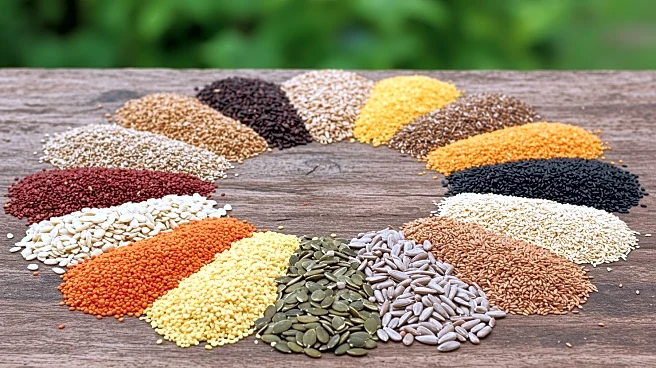What is the story about?
What's Happening?
A recent episode of The Battle for African Agriculture podcast delves into the influence of international seed laws on African agricultural sovereignty. Dr. Carlos Correa, Executive Director of the South Center, discusses with host Dr. Million Belay how these laws have historically favored commercial interests over farmer-led systems. The conversation focuses on the UPOV Convention, established in 1961, which primarily served commercial breeders. The 1991 version of the convention expanded monopoly protections while excluding farmers' rights, despite Africa's reliance on farmer-managed seed systems. Over 80% of seeds in Africa come from informal, farmer-preserved sources, yet free trade agreements and corporate pressures push African nations towards restrictive regulations that undermine traditional systems. The podcast highlights the threat these laws pose to biodiversity and climate resilience, as they often fail to consider diverse agricultural ecosystems and smallholder farming practices.
Why It's Important?
The discussion on seed laws is crucial as it impacts food sovereignty and genetic diversity in Africa. The imposition of restrictive seed laws could undermine traditional farming practices that are vital for the continent's food security. By favoring commercial interests, these laws threaten the biodiversity that is essential for climate resilience. The podcast underscores the need for African nations to develop seed laws that recognize and protect farmer-managed systems. This approach could safeguard biodiversity and support sustainable agricultural practices. The conversation also points to successful examples, such as India's sui generis law, which respects local agricultural realities and could serve as a model for African countries.
What's Next?
The podcast suggests that African nations have the political space to resist external pressures and chart their own course in agricultural policy. By developing seed laws that align with their agricultural ecosystems, these countries can protect their food sovereignty and genetic diversity. The growing calls across Africa for seed laws that recognize farmer-managed systems indicate a potential shift towards more sustainable and inclusive agricultural policies. This movement could lead to legislative changes that prioritize biodiversity and climate resilience over commercial interests.
Beyond the Headlines
The implications of seed laws extend beyond agriculture, touching on ethical and cultural dimensions. The preservation of traditional farming practices is not only a matter of food security but also cultural heritage. The push for restrictive seed laws raises ethical questions about the rights of farmers and the control of genetic resources. By advocating for seed laws that protect farmer-managed systems, African nations can assert their sovereignty and cultural identity in the face of globalization.














